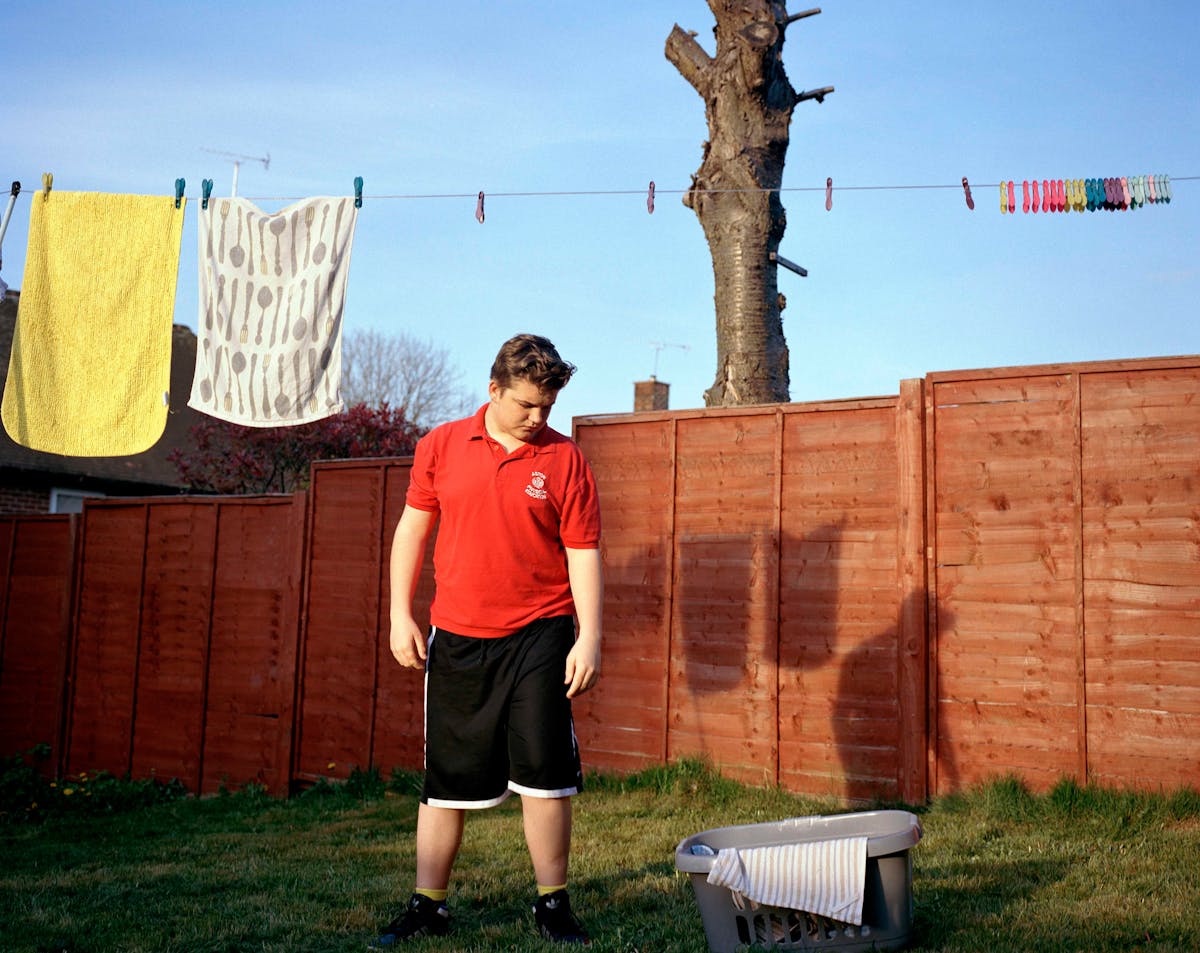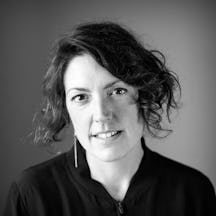Photographer Abbie Trayler-Smith used her own experience of being an overweight teenager to connect with six young men who struggle with their weight. Get an insight into what being fat feels like for boys through Abbie’s empathetic eye and the boys’ own words.
This is an intimate study of how it feels to be overweight as a young man in today’s world. I was a fat teenager myself and I know how it feels, and what effect it can have on your life. Alarmist headlines fail to examine the everyday reality of struggling with weight and self-image. Being overweight or obese is deemed to be self-inflicted, or even a lifestyle choice, and the ‘culprit’ is labelled greedy, lazy, lacking in discipline.
Statistics from the National Child Measurement Programme (NCMP) show that among Year 6 children (age 10–11), 20.1 per cent were obese and 14.2 per cent were overweight in 2017–18. Boys were slightly more likely than girls to be obese.
The aim of this work is to show that this is a complex and nuanced subject and to tap into the wider youthful experiences of insecurity and disquiet, which so many of us, fat or not, go through with our own bodies and self-image during those formative and insecure teenage years. The idea that once you have lost weight you are cured is wrong. Obesity is the disease that keeps on giving.
Byron
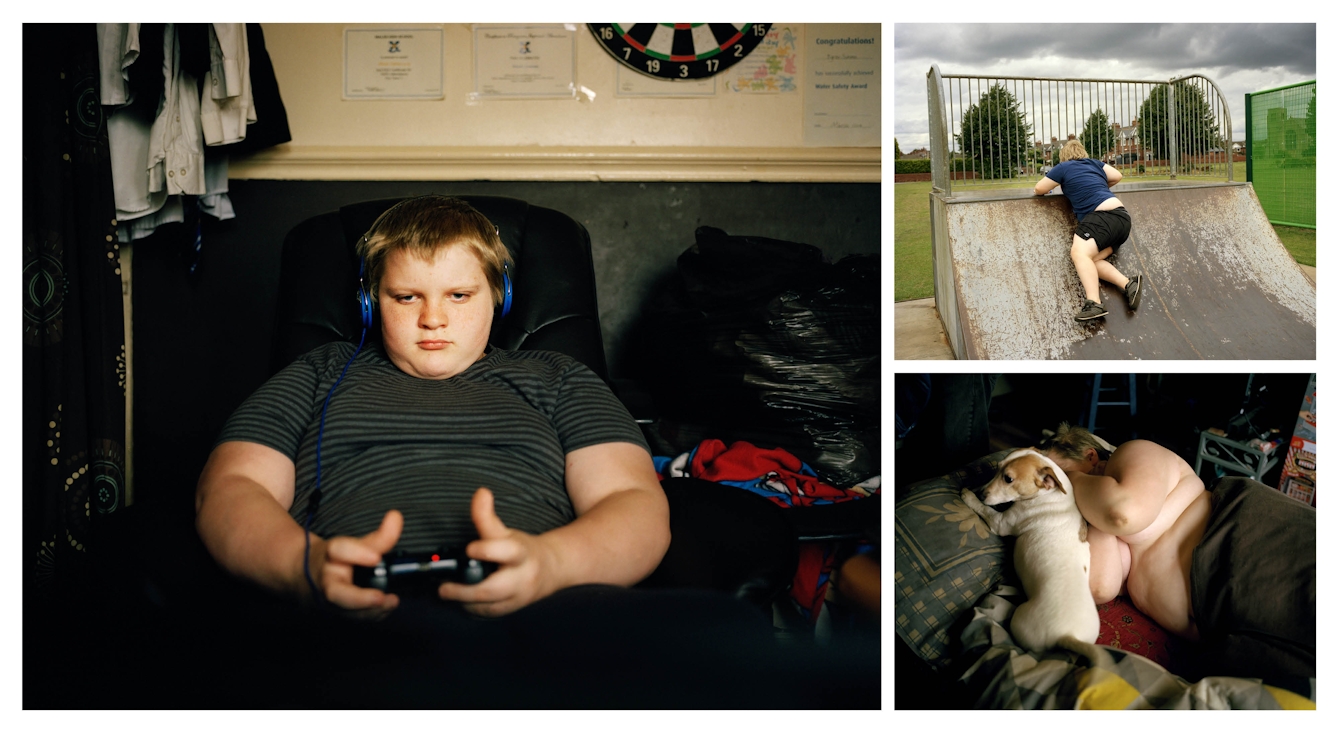
Byron, 14, lives with his dad Phil in Rotherham.
Byron comes across as shy, but has a winning smile and clearly understands more than his years. I first met him in 2015 at an after-school weight-management club when he was ten. He was enjoying the sports activities, but he’d stopped going to the local playground as the taunts and jeers were getting unbearable.
Four years on, the situation has got a whole lot worse. He rarely leaves the house and spends so much time online, gaming and talking to friends in America and Australia, that his thick northern accent has morphed into an American one.
In July 2019 his dad, Phil, told me, “He’s stopped going to school now. Because of the bullying. We had the window smashed in again three weeks ago. That’s the third time this year. It’s kids that have been bullying Byron about his weight since junior school. At Easter they tried to set him on fire with an aerosol and lighter on the bus. Then they chucked his new football boots out the window. You can only push him so far and he’ll snap, and I wouldn’t like to be on the receiving end of that, ’cos he’s a bloody big lad.
“I managed to get him out to the fair the other night. And when he comes out of his shell, he’s great company. He’s a brainy bugger. He is conscious of his weight, of course. I’m gonna take him to the doctor’s for blood tests, as there’s nothing in this house that’d make him fat. I don’t know what I’ve done… And I’ve got a meeting with the school next week, to try and get something changed.”
Vinay
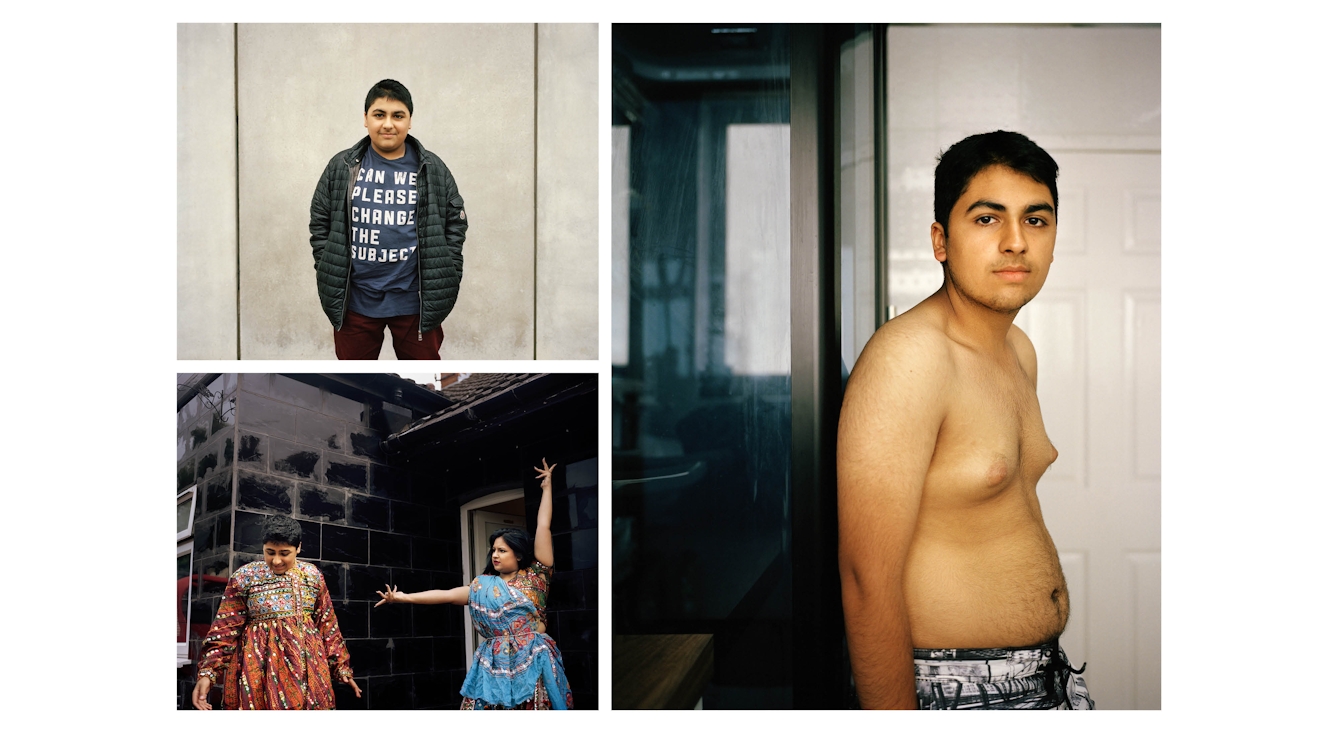
Vinay, 18, lives in Leicester with his mum Shilpa and sister Shivani.
I first met Vinay when he was 12. His T-shirt read “CAN WE PLEASE CHANGE THE SUBJECT” and that is how I felt about the issue of obesity when I first started working on it. Vinay’s T-shirt spoke to me, as did his attitude. He has always been positive, and has not let his weight affect what he loves to do, like Bollywood dancing.
Vinay says, “I remember in Year 4 hating going swimming because I knew I was overweight. I used to sit with my arms crossed. I was officially told in Year 6 when we got a letter home. They weighed us all. I read the letter myself – I remember it clearly. I was still in the mode of ‘I’ve got a layer of fat to protect my six-pack’.
“Relatives used to mention my weight, saying I wouldn’t fit through the door. They weren’t meaning to be cruel, but it pissed me off. People used to laugh at my body. That was awkward. I made it funny by using fat persons’ rebuffs like, ‘I can change my weight but you can’t change your face.’ It still got to me, though. And I did want to change it.
“I knew I was overeating and not because I was depressed, but because I was bored. I’m really glad I lost the weight; I feel a lot better. I feel you should be okay with your body. Humour helped me deal with it but at the end of the day I didn’t want to be fat. Because I felt ashamed. I wanted to cover it up. It’s about your appearance and how you feel, not about health.
“I’ve got a happy home life, I did well in my GCSEs and have just got all As for my A-levels, and I’m starting at King’s College London. I’m still dancing, Bollywood style, with Shivani in our group.”
Mason
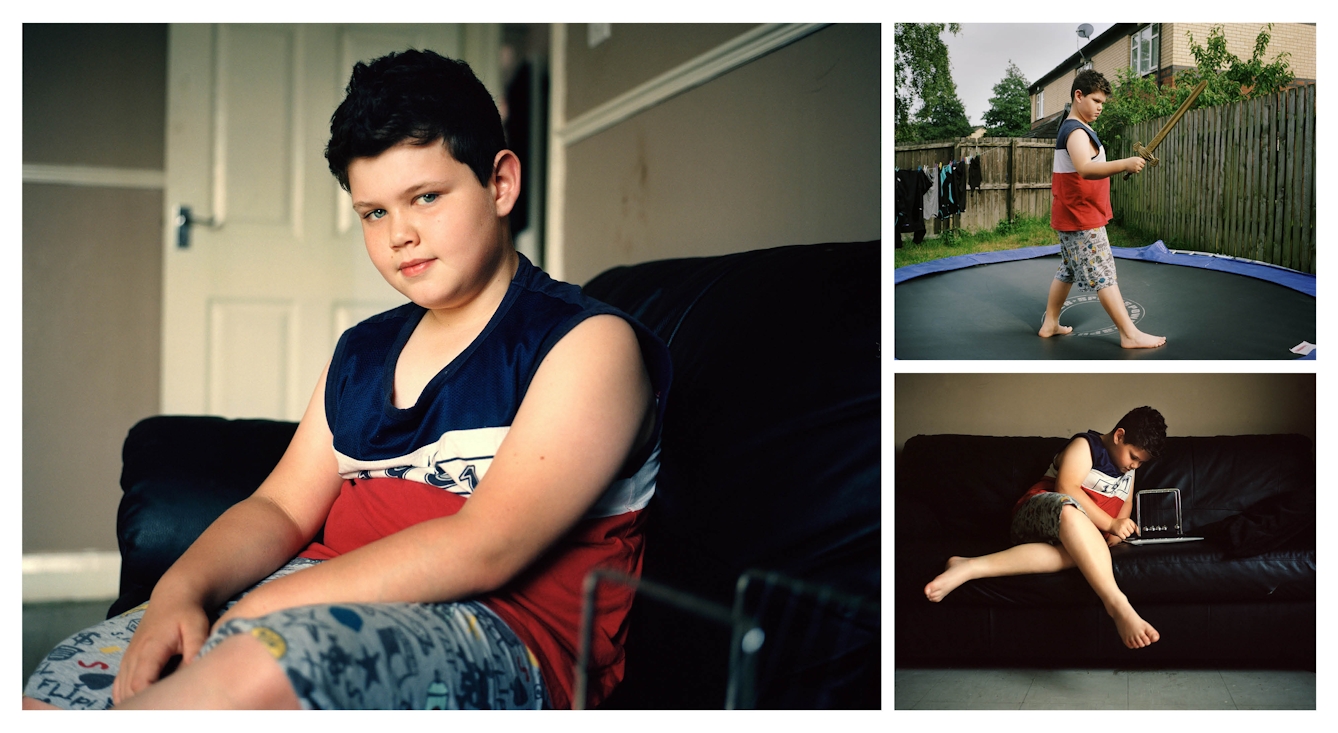
Mason, 10, lives with his guardian Rachael in Sheffield.
Mason is exceptionally bright: he can recite the periodic table, the whole thing, in one go. It blew my mind when I met him in early summer 2019. He loves science and art and spends hours on science kits and drawing imaginary figures inspired by science. He couldn’t wait to show me all his ‘toys’, which include things like his beloved Newton’s cradle.
We met through Shine, a not-for-profit organisation aiming to help obese young people aged ten to 17 years to lose weight and increase their confidence and self-esteem. Kath Sharman, the founder, tells me, “Children do their best when they’re feeling their best. We look at the data and their progress dips when they are in a crisis. Adults might drink or smoke, but children use food as a way of coping. Rather than blame, shame and judge, parents and kids need to be understood. Weight stigma discourages them.”
Mason’s mum died in December 2017, very quickly after being diagnosed with cancer. That’s when his weight began to get out of control. He lives with his guardian Rachael, his mum’s best friend. Rachael tells me, “He’s his own person; he doesn’t care what anybody thinks. When his mum got ill she was doing a healthy-eating thing and one of the last things she asked me was to take him to Shine before big school because kids are mean at big school. Since going to Shine he tells me when he’s full; he never used to do that. He used to comfort-eat after his mum died, but we don’t do that any more.”
Kath tells me how proud she is of Mason. “He’s come on a lot. If ‘eat less, exercise more’ worked, then we wouldn’t have an obesity epidemic. With obesity, there’s so many things that can lead to it: unless you’re working on all of them, one can sabotage the other, it’s so complex. It’s once you’re in a happy place that you can really get going on your weight-loss journey.”
Jack
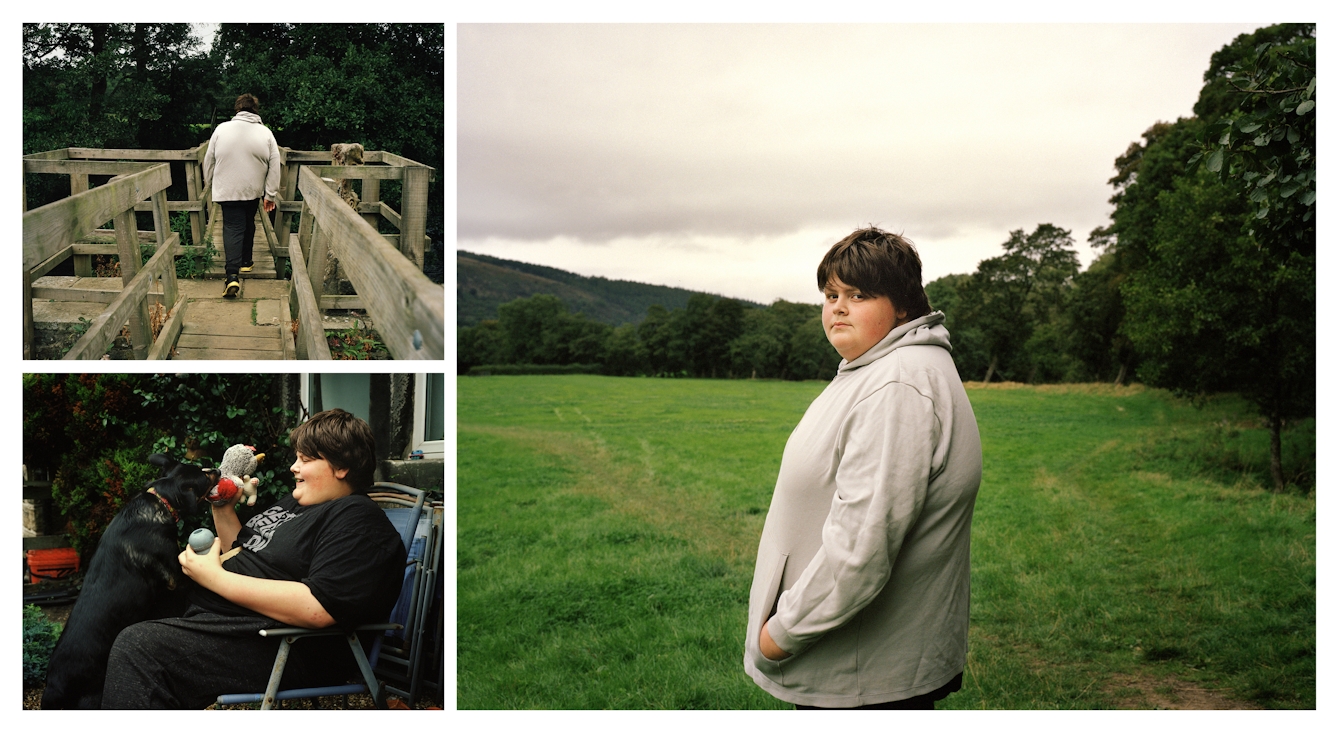
Jack, 15, lives with his mum Lisa in the Peak District.
I met Jack in 2019 at Shine. He has enjoyed attending, and loved going on the residential summer camp for a week. After some time out of school, he has recently returned.
Lisa, his mum, says, “Jack’s always been overweight. I feel guilty – everything he’s eating, I’ve given it to him, but then he ate the same as Charlie [his brother] but Charlie didn’t put on weight, so I don’t know. We’ve been going to the doctor’s for forever.
“He stopped going to school in January – didn’t feel like it, had no motivation to move or go anywhere. He was supposed to go into hospital for his tonsils, but it was cancelled three times, and by the time the third op was cancelled he’d just stopped going to school. You think ‘that’s never going to happen to my son’, but you try getting a 15-year-old that won’t go to school to go.”
Jack says, “Now I’ve just started back at school, I wanna get it over and done with, wanna get on with it. I knew it was now or never; I felt I could push myself.”
Tyler
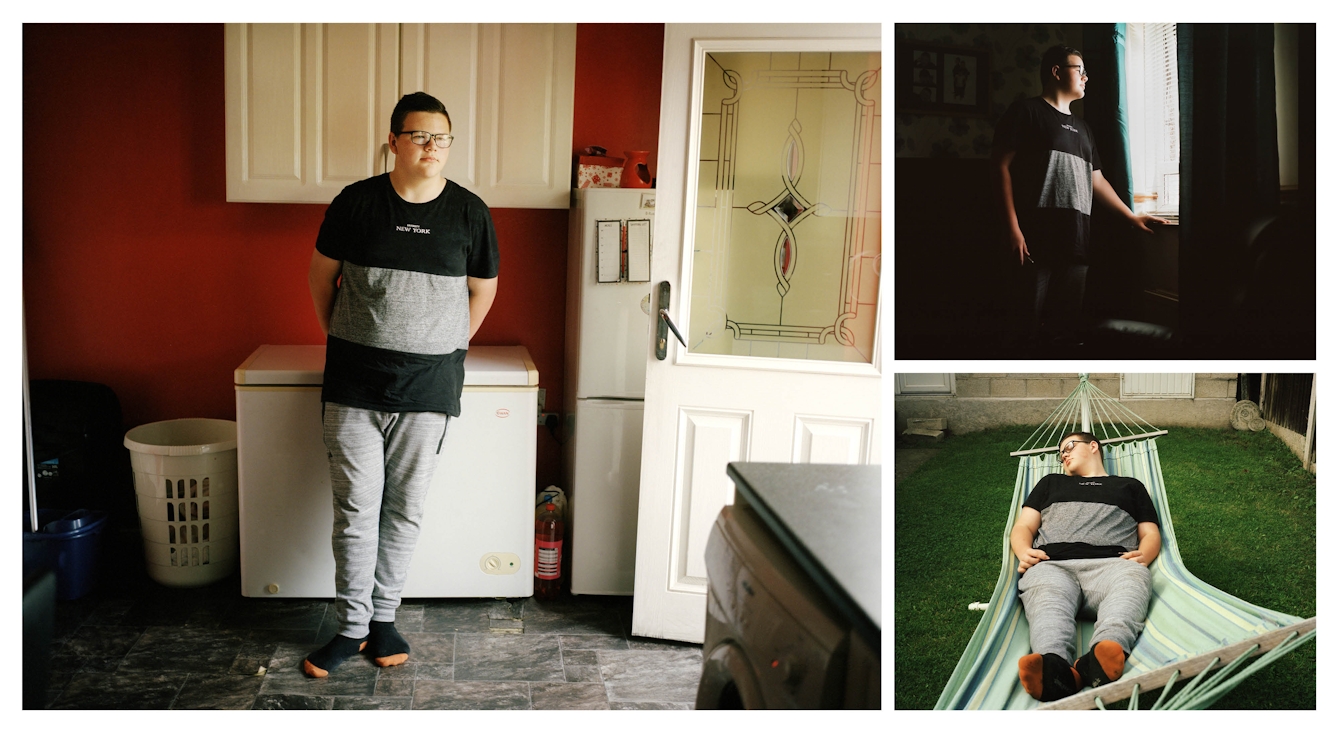
Tyler, 15, lives with his mum and dad, Sarah and Graham, and his brother and sister in Sheffield.
Tyler got his GCSE results in summer 2019 and started a college course in media. He’s been at Shine (where I met him) for two years. His mum Sarah says, “He was born 10 lb 4 oz – he’s always been big.”
Tyler says, “When I was 14, I went to Mum and said I wanted to lose weight. I wanted a change and I wanted to fit into my clothes. I couldn’t fit into XXL and there are no trendy clothes for boys that size, no plus-size shops for boys: I had nothing to wear, either nothing fitted or I had grown out of it. I didn’t feel my best. Mum went to the doctor’s. I have always overeaten and had big portions. I cut them down and lost some weight. I realised I was eating because I was bored.”
His dad Graham says, “It’s harder for him. Sports is just not his thing. His sister does dancing and trampolining, but that’s not his thing either. Since going to Shine he’s started to feel more confident and learned about portion size and nutrition.”
This positive mindset has been reflected in Tyler’s weight. He explains, “Now I can fit into XL bottoms and tops and I can shop at JD Sports and Primark. I even bought a medium top and it fitted me and that felt good.”
Kieran
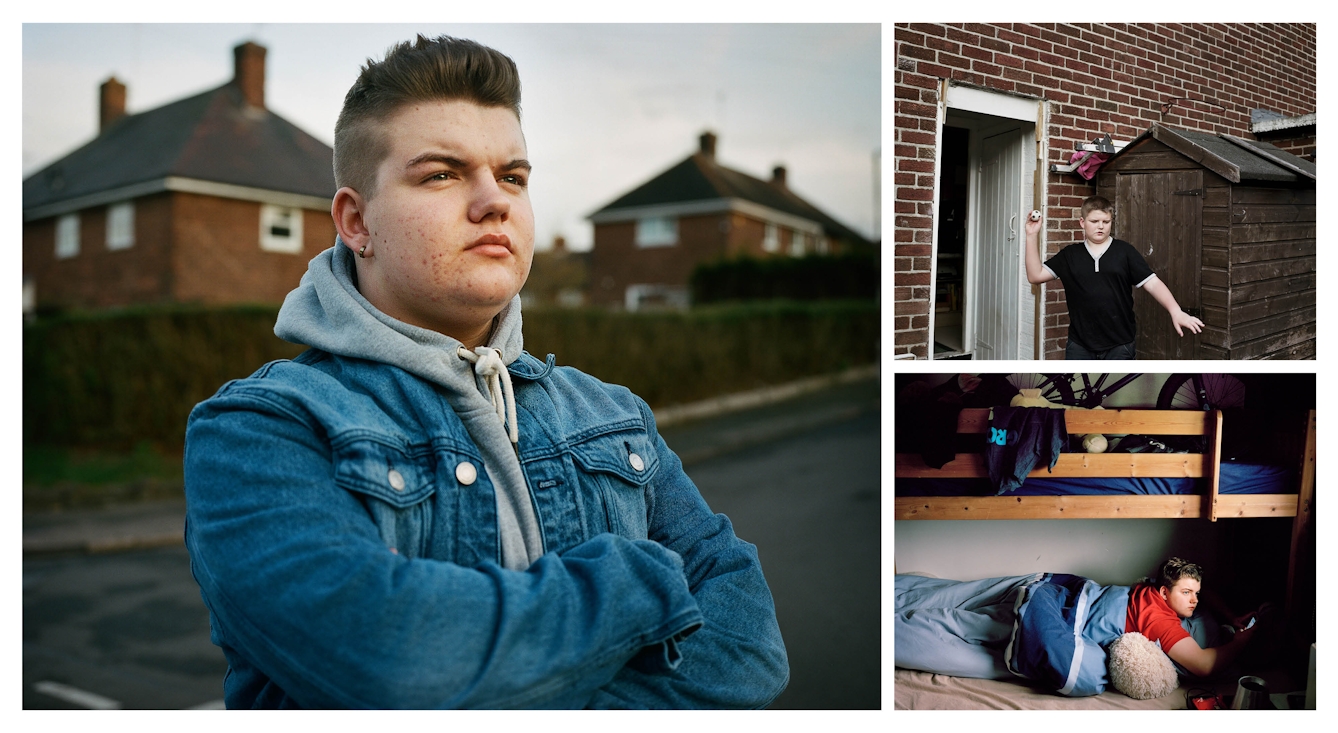
Kieran, 20, lives with his mum Lorraine and sister Shannon in Sheffield.
Kieran is a breath of fresh air: cheeky and funny and certainly not shy. I’ve known him for almost nine years now, from when I started photographing his older sister Shannon for my work ‘The Big O’, which mainly looked at obesity in young girls. The more I got to know their warm, hard-working family, the more I realised I needed to start working with Kieran to get a perspective on how boys feel living in their fat bodies.
At 14 this is what he had to say: “Being overweight makes everything harder because in most of your daily activities you’re carrying more weight than you should be. I’d say that it’s known that girls are unhappy with themselves, but boys tend to keep it bottled up, so no one knows that they’re unhappy with themselves at all. Being slim definitely gives you an advantage with girls, ’cos obviously they like confidence and obviously slim lads are more confident than big ones. You just look better when you’re slim.”
When I said to him that he seemed pretty confident now, he laughed and with a twinkle in his eye said, “God help us then, if I lose weight.”
We spoke in 2019 and he updated me on his life. “I’ve lost a bit of weight. I’m now confident in my body despite my size, and it’s easier to live with. I’m still not totally happy with where my body is, obviously, but I’m in the gym making progress, and it’s not really a downside any more, it’s a part of who I am, and it’s shaped me into the person I am today.”
About the photographer
Abbie Trayler-Smith
Abbie Trayler-Smith is a UK-based documentary and portrait photographer whose work draws on an emotional response and engagement with her subject. She has over 20 years’ experience of making images and telling stories. Her work has been widely published and exhibited internationally, and gained recognition in the World Press Photo Awards 2014 and the Taylor Wessing Portrait Prize (fourth in 2014 and second in 2017), among numerous other awards.
